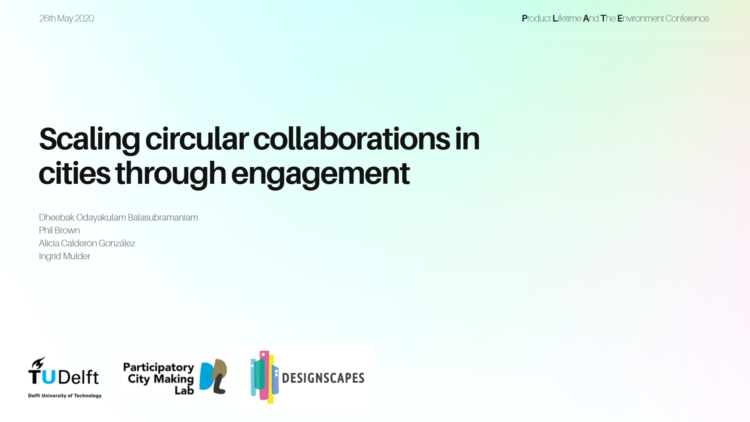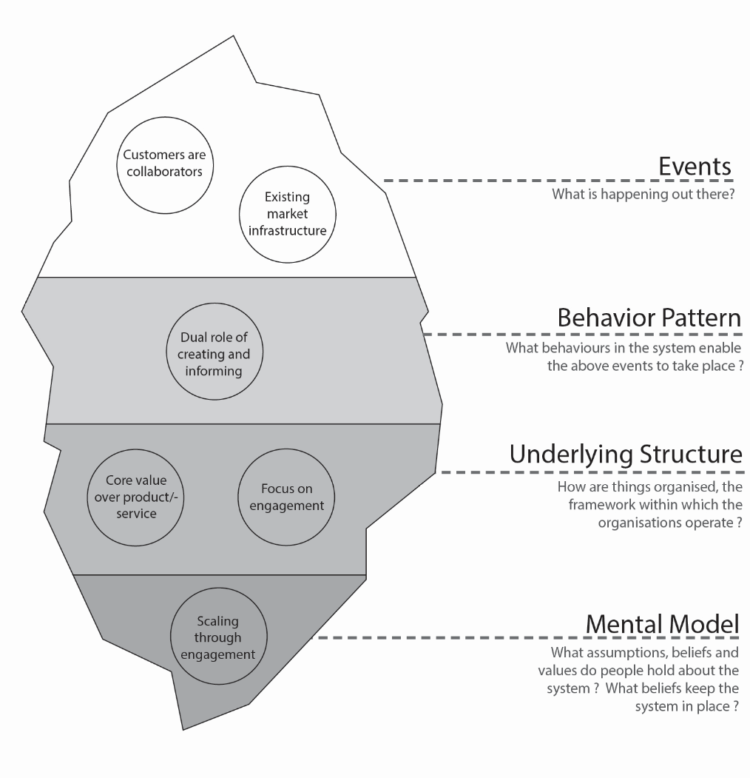Sharing experiences on how to scale collaborations for circular economy in cities
PCM lab alumnus Dheebak Odayakulam Balasubramaniam was invited to present at PLATE - Product Lifetimes And The Environment Conference 2021, hosted at the University of Limerick. His paper, titled “Scaling Circular Collaborations in Cities through engagement”, discusses the results from his previous work, on how circular organisations can scale in a circular economy.
Sharing experiences at PLATE
In a time where discourses on sustainability and circularity are gaining more and more attention both at the global and European level, PLATE Conference aims to create a multi-disciplinary forum for researchers, practitioners and educators from a wide range of disciplines determined to understand and react to the influence of product lifetimes on the environment. For its 4th edition, the conference was held for the first time completely online. A dedicated digital platform was created to host diverse events and happenings, going from presentations by delegates, live keynote presentations, online discussions, video chats, coffee breaks, and networking space. An active and multi-disciplinary environment where Dheebak had a chance of meeting interesting people and hearing about great research on the circular and sharing economy.
Dheebak was invited to present his research in the panel Sharing & Collaborative Consumption and other researchers and practitioners in a lively and thoughtful discussion with other authors and participants. The discussions in the panel revolved around the types of communities around which these circular collaborations took place. The reflections around the types of communities that were collaborating in the research. This also led to conversations around centralized and decentralized collaborative practices that take place in cities.
People also resonated with the various results, like the shifting role of customers towards collaborators and shared similar findings on how the social part of a circular economy has less focus currently.

Why focus on collaborations and cities?
The circular economy has gained traction within companies resulting in many exploring new product and business model combinations. Yet, to transition towards a circular economy on a societal level requires going beyond purely new product and market-based opportunities. To enable societal level change, innovations at the ecosystem level are important and collaboration plays a key role in creating eco-system level innovations. The current work viewed the circular economy as a means to an end for achieving a sustainable world; in other words, a world where a circular economy has become the norm. Cities are hubs of innovation playing a key role in the transition to a circular economy. They are responsible for 80% of global resource consumption, with a high concentration of capital, data, and talent spread over a relatively small geographic area; making them an important part of societal level transitions. The current work stresses the need to understand and support collaborations in transitioning towards a circular economy.
Who was investigated for the research?
This research investigated what factors influence collaborations and how organizations collaborate for a circular economy in the context of cities. An initial literature review resulted in a framework for exploration. This was later used in conducting semi-structured interviews with people ranging from founders, designers to engineers from six circular start-ups, which operate and utilize the resources in cities; to understand how they collaborate with various organizations in cities.
What were the results?
Results showed circular organisations focus on operationalizing their innovation through engagement with different stakeholders who could support their organisation. They focused on engagement to showcase the value their organisation offers beyond the end product/service. As they increased their visibility in cities, the ways and number of engagements, the organisation engaged with people having similar values and grew by scaling through engagement. The results are elaborated in the research paper but an overview of the results is illustrated in the Ice-berg model (see-below), the model showcases how the various results are present at different levels of interaction from events to mental models

The conference proceedings can be found here.
To cite this work please refer to it as follows: Odayakulam Balasubramaniam, D., Brown, P., Calderón González, A. & Mulder, I. (2021). Scaling Circular Collaborations in Cities through engagement. In: Proceedings of PLATE 2021, 4th Conference on Product Lifetimes and the Environment (PLATE), Limerick, Ireland, 26-28 May 2021.